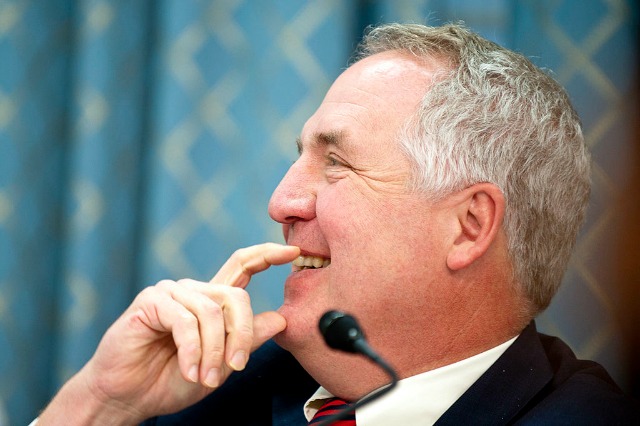Rep. Shimkus Doubled Down On Prenatal Care Comments Last Weekend
By aaroncynic in News on Mar 14, 2017 6:58PM

Rep. John Shimkus (R-IL) (Photo by Pete Marovich/Getty Images)
"What's written after the fact is just stuff I can't control,” Shimkus told the News-Gazzette on Saturday of the various articles written on his comments last week. “I didn't think it was very controversial at all. It's not different than anything I've been saying for six years."
In an exchange with a colleague in the Energy and Commerce Committee on plans to repeal and replace the Affordable Care Act last week, Shimkus wondered why men should pay for prenatal care for women.
“What about men having to purchase prenatal care,” asked the Congressman from downstate Collinsville, which appeared to flummox both his colleague and many other legislators in the room. “Is that not correct? And should they?”
In an interview with the Southern on Friday, Shimkus reiterated this sentiment. “Why would you buy a cabin in Montana that you’re never going to use,” he said.
Despite one of the principals of the current system of purchasing health insurance being based on a wide swath of people contributing to a risk pool or knowing the specifics of how changing that would work Shimkus said he believes that segmenting coverage would bring more people into the market and lower costs overall.
“People should be able to buy the healthcare package that they think they need. People should not be forced to buy parts of a policy that they will never use,” said the congressman.
Seemingly ignoring projections from a Congressional Budge Office review of the new GOP insurance plan that show by 2018 14 million people would be without health insurance, which would increase to 24 million by 2026, Shimkus lamented people who talked about the benefits of the ACA. “They forget to tell you about the 4.7 million people who lost the insurance that they had and mostly policies that they like,” he said.